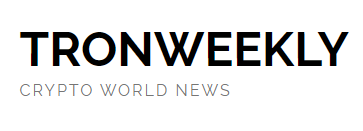March 6, 2025 by Mishal Ali
Key Takeaways:
- El Salvador remains committed to Bitcoin despite IMF conditions.
- The IMF’s $1.4 billion loan includes transparency and anti-corruption mandates.
- Bitcoin’s role in the country’s financial system faces restrictions.
El Salvador’s Bitcoin strategy remains unchanged, despite external pressures. President Nayib Bukele reaffirmed the nation’s intent to continue Bitcoin purchases, rejecting claims that they would cease. His statement followed the International Monetary Fund’s (IMF) demand that the country’s public sector must avoid accumulating Bitcoin.
“This all stops in April.” “This all stops in June.” “This all stops in December.”
No, it’s not stopping.
If it didn’t stop when the world ostracized us and most “bitcoiners” abandoned us, it won’t stop now, and it won’t stop in the future.
Proof of work > proof of whining https://t.co/9pC0PoY3YQ
Over the years, El Salvador has integrated Bitcoin into its financial system, making it legal tender in 2021. This move was met with global skepticism, including warnings from financial institutions regarding potential economic instability.
His words came during the time that there was speculation that his government was likely to reverse its stance after negotiations with the IMF. However, he indicated that the use of BTC was a lasting commitment and not an experiment.
His action highlights the implicit conflict between El Salvador’s economic strategy and the IMF’s routine expectations. While critics assert that the volatility of the cryptocurrency risks eroding national reserves, Bukele remains firm about making the cryptocurrency part of the future of the country.
IMF Loan Secured with Stringent Conditions
Following years of negotiations, the IMF agreed to lend El Salvador $1.4 billion. The deal came with several conditions, however, that centered on the issues of transparency, financial control, and government reforms.
Reducing the measures related to BTC was one of the major conditions. The government was promoting the use of BTC as a tool of financial inclusion but the IMF urged to limit the use of the cryptocurrency within the government.
The accord made the use of Bitcoin voluntary but discouraged further government interference in cryptocurrency transactions.
Furthermore, the IMF imposed the measures to check corruption, including the creation of a National Anti-Corruption System. The government officials are to submit annual wealth and taxation declarations. The measures were meant to enhance the government’s governance, but there are doubts regarding the enforcement.
Critics have charged the government led by President Bukele with restricting the availability of information to the public, reducing the level of institutional transparency. Despite these measures being taken, the IMF conditions don’t deal with the broader issues about the judicial independence of El Salvador.
Future of Bitcoin in El Salvador
Whereas El Salvador has made some concessions to some IMF demands, the government has remained committed to Bitcoin. The government has issued Bitcoin-backed bonds in the past and encouraged cryptocurrency-based economic programs. The IMF accord does recognize these risks but emphasizes financial stability instead of prohibiting the use of BTC.
Practically, the deal ensures that government involvement in transactions via Bitcoin will be kept to a minimum. Even international skepticism aside, though, Bukele appears to be keen to move ahead, which means there will be a continued role for BTC within the country’s economic agenda.
Related Reading | SUI Price Erupts 428% As Network Activity Hits New Heights

 7 months ago
45
7 months ago
45




 English (US) ·
English (US) ·